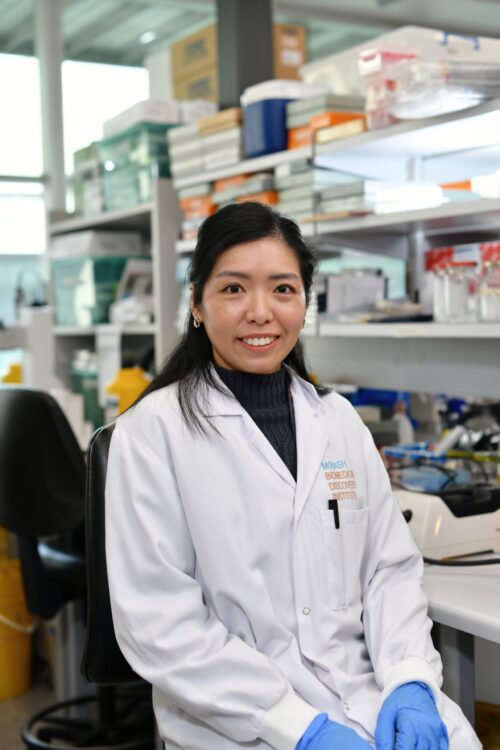Donor funding supports ground-breaking precision medicine for ovarian cancer
18/09/2022

Generous funding from the Johnstone Family Foundation is supporting the Cabrini Monash University Department of Medical Oncology to commence a new research program that will drive precision medicine discoveries in ovarian cancer.
A key element in making precision medicine a reality for more patients is the development of preclinical models that mimic numerous vital features of patient tumours. Preclinical models can drive biological discovery of cancer mechanisms and fast-track drug discovery, and have the potential to guide treatment selection for patients – saving patients from side effects and ineffective treatments. The development of preclinical models that accurately represent ovarian cancer is of great urgency.
Organoids are a revolutionary patient-derived preclinical model. As mini-replicas of tumours grown in the laboratory, they maintain the genomic landscape and heterogeneity of the tumours they come from and have enormous potential in clinical translational research that will improve human health.
The Johnstone Family Foundation funding will allow Professor Gary Richardson OAM and Dr Dilys Leung, with their collaborators at Monash University, to develop a novel panel of ovarian cancer organoids that will drive world-class research into ovarian cancer, including new drug discovery, tumour modeling and patient treatment selection.
Dr Leung, an early career postdoctoral researcher, is excited about working in ovarian cancer again, having spent the first few years of her career in this field before she joined Cabrini to work with the breast cancer organoid program.
“Women with ovarian cancer have long endured toxic chemotherapy regimes and nasty side effects. There is huge potential in ovarian organoids to be able to identify the best treatments or novel drug targets specifically catered to the needs of each cancer patient. These are exciting times as we work towards personalized medicine for our patients,” said Dr Leung.
Professor Gary Richardson said of the program “We are incredibly grateful for the support of the Johnstone Family Foundation – without their backing, we wouldn’t have been able to establish this novel research program that will change outcomes for women with ovarian cancer.”
Development of ovarian cancer organoid models and the knowledge that will be gained from them will push the boundaries in precision medicine and bring us closer to a personalised therapy approach for every ovarian cancer patient.
Ovarian cancer is one of the most lethal gynaecological cancers and the eighth most common cancer in women. Each year in Australia, it is estimated more than 1700 women will be newly diagnosed with ovarian cancer and, sadly, more than 1000 women die from the disease. A lack of early symptoms means the majority of women are diagnosed with advanced disease and have poorer chances of survival. Surgery and platinum-based chemotherapy has been the standard of care for ovarian cancer for decades. Newly-developed PARP inhibitors – used alone or in combination – have been showing promising results, but not every patient responds, leaving them without any treatment options.
One of the main reasons cancer therapies fail for patients, and why a large number of clinical trials fail, is due to cancer heterogeneity – differences between tumours of the same type. Ovarian cancer is extremely heterogeneous – here are many types, subtypes and genetic factors that distinguish every tumour.
Precision medicine aims to treat every patient on an individual basis, and removes the challenge of tumour heterogeneity. It uses information about a person’s genes, proteins and environment to prevent, diagnose and treat cancer.
To learn more about Cabrini Research, visit www.cabrini.com.au/research/